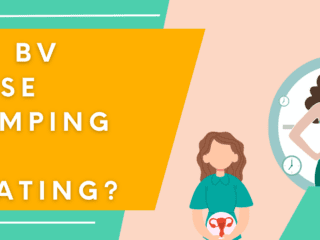The signs and symptoms of pancreatitis can vary, but pain in the upper left quadrant is one of the most common, especially when accompanied by a fever and vomiting. Most complain the pain becomes more intense after eating or drinking.
Symptoms
- Upper abdominal pain that may radiate to the back
- Pain that gets worse after eating or drinking
- Fever
- Rapid heartbeat (tachycardia)
- Nausea and vomiting
- The stomach is tender to touch
Chronic pancreatitis sufferers may also experience:
- Unexplained weight loss
- Steatorrhea (oily, smelly stools)
FAQ
What does the pain of pancreatitis feel like?
It will likely be a throbbing pain that increases with movement. In addition, it may radiate around to the back and the pain can increase after eating or drinking. The entire area from the stomach to the left side of the abdomen may hurt when touched, as well.
What triggers pancreatitis?
Alcohol Consumption
Excessive drinking is a common trigger for pancreatitis.
Gallstones
It can also occur secondary to another condition like gallstones. When a person develops gallstones, they can block the bile duct that allows digestive enzymes to enter the small intestine. With the duct blocked, enzymes produced by the pancreas have nowhere to go, so they go back into the organ and cause inflammation there.
Diet
Diet can be a defining factor in the development of pancreatitis, too. Diets high in unhealthy fats, like trans or saturated, increase the risk for instance. Excessive consumption of red meat may be part of the problem, as well.
Medications and Other Underlying Conditions
Medications such as sulfa, water pills, immunosuppressants, or drugs for the treatment of HIV can trigger pancreatitis. So can underlying conditions like gallbladder disease, cystic fibrous, and hyperparathyroidism.
Other Conditions
Other potential triggers may be:
- abdominal surgery,
- gallstones,
- high levels of blood calcium and triglycerides,
- infection,
- traumatic injury to the stomach, and
- obesity.
Pancreatitis may be a symptom of cancer, too.
Can pancreatitis go away on its own?
Mild cases can clear up on their own in about a week, especially with lifestyle changes like avoiding alcohol, sticking to a liquid diet, and stopping smoking. More severe attacks may take a couple of weeks of self-care.
Those who take medications such as sulfa, water pills, immunosuppressants, or drugs for the treatment of HIV should talk to their doctors about changing medications. A patient should never just stop taking these drugs even if they think they may be causing their pancreatitis.
How do you know if something is wrong with your pancreas?
The telltale sign for pancreatitis is pain that increases after eating or drinking. This fact is because the organ will create enzymes to help digest food, and that can trigger intense pain.
Examining lifestyle might offer some indication, too. For example, excessive drinking is a primary risk factor, as is weight or a diet high in fat or red meat. Someone who drinks a lot or eats a high-fat diet and also has stomach pain might conclude the problem is with their pancreas.
It will be up to the healthcare provider to make that diagnosis, though. Anyone who suspects they may have problems with their pancreas or who has persistent abdominal pain should seek medical treatment.
Disclaimer: this article does not constitute or replace medical advice. If you have an emergency or a serious medical question, please contact a medical professional or call 911 immediately. To see our full medical disclaimer, visit our Terms of Use page.





